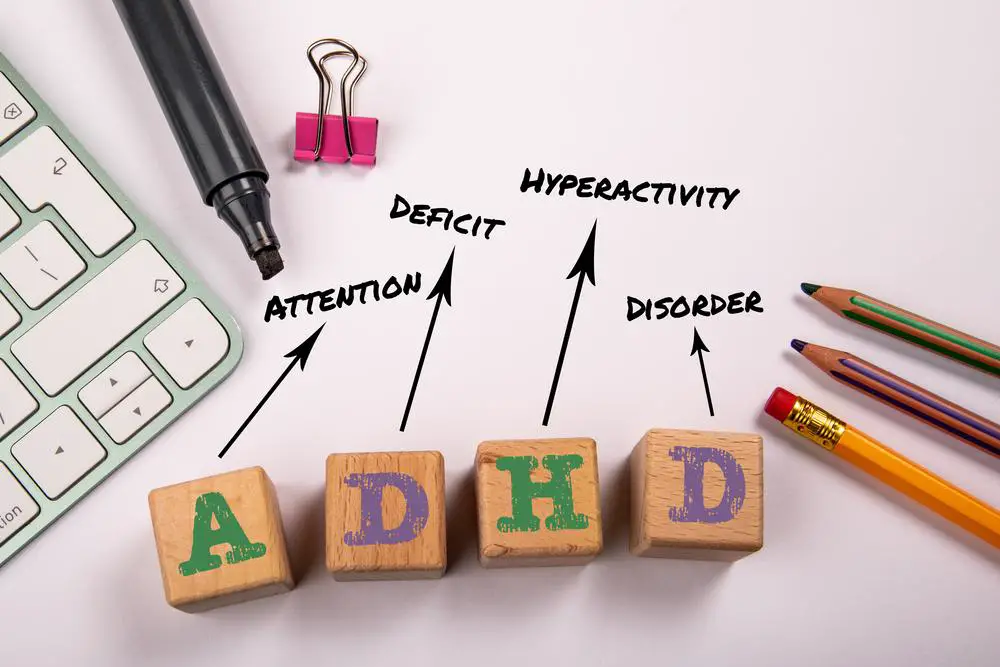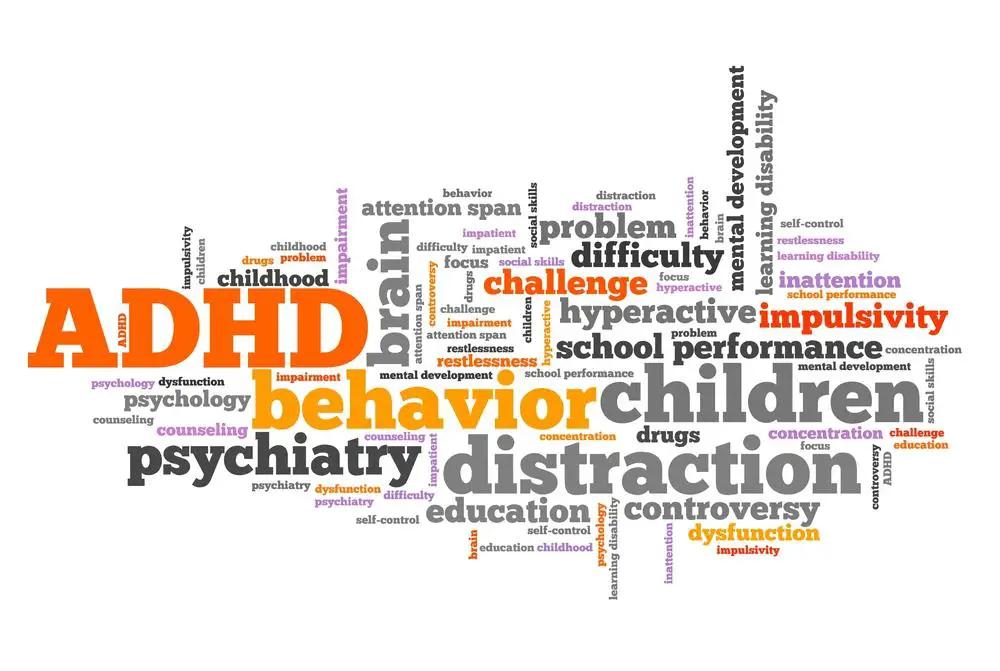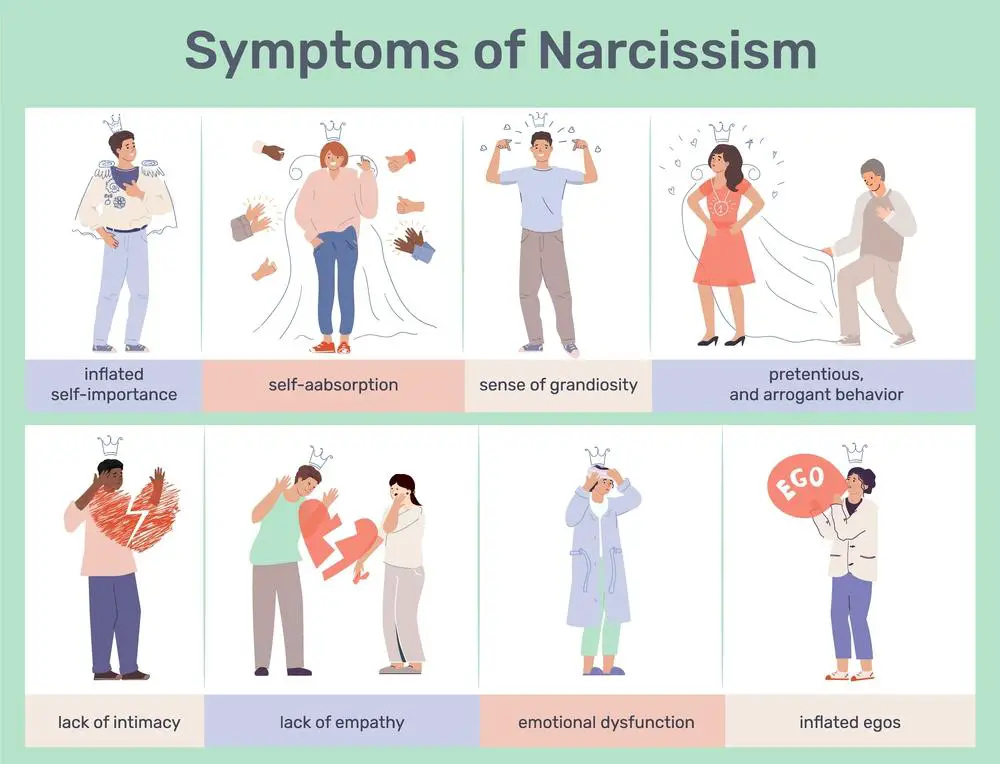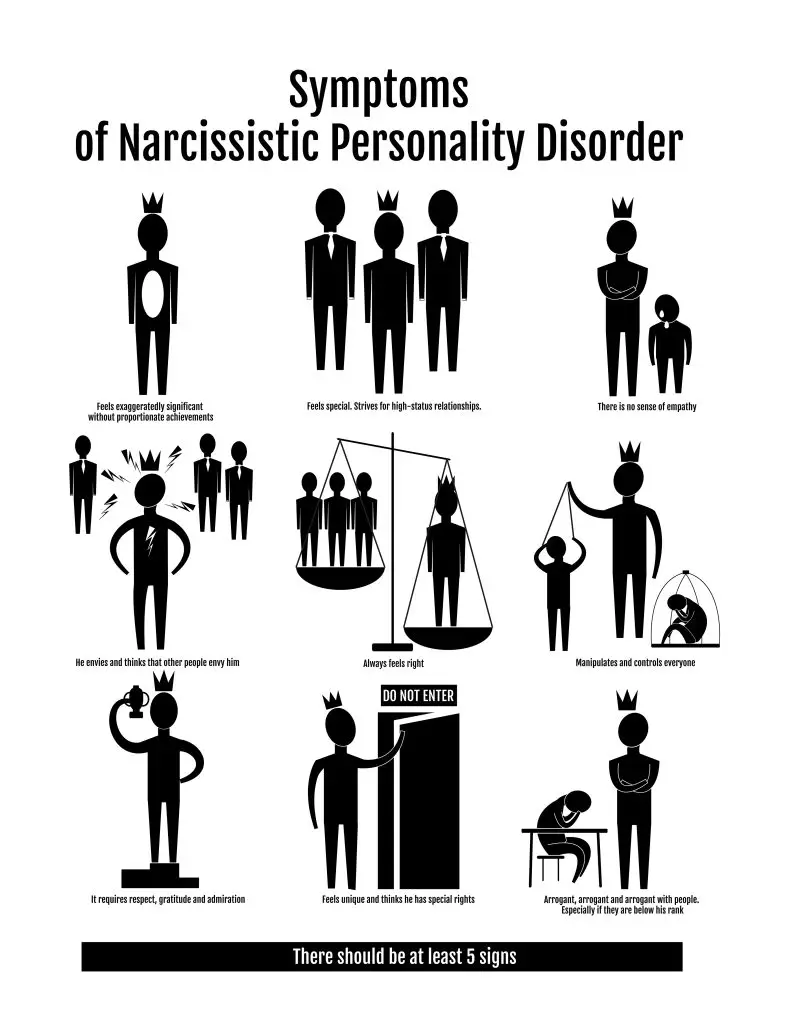As a BetterHelp affiliate, we receive compensation from BetterHelp if you purchase products or services through the links provided
Attention-deficit/hyperactivity disorder (ADHD) and narcissistic personality disorder (NPD) are complex conditions that affect behavior and mental health. While persistent patterns of inattention and hyperactivity-impulsiveness characterize ADHD, NPD involves a long-term pattern of exaggerated self-importance, a need for excessive admiration, and a lack of empathy. Both conditions can significantly impact one’s life, from personal relationships to professional environments.
Understanding the overlap and differences between ADHD and narcissism is essential for proper diagnosis and treatment. Many people may not realize that ADHD and NPD can present with certain similar traits, such as impulsivity or difficulty with emotional regulation, which can make distinguishing between them a challenge. Furthermore, each condition may influence the other, complicating the individual’s social interactions and ability to manage personal relationships.
In dealing with ADHD and narcissism, it’s essential to consider the role of therapy and treatment strategies, which can differ based on the individual’s unique set of symptoms. Behavioral management techniques, medication for ADHD, and talk therapy for narcissistic traits are often employed. Additionally, recognizing the influence of parenting, childhood environment, and broader cultural perceptions helps contextualize these disorders and their management on a personal and societal level.
Key Takeaways
- ADHD and NPD affect behavior and mental health with distinct and sometimes overlapping symptoms.
- Correct diagnosis is vital as similar traits like impulsivity can appear in both ADHD and NPD.
- Treatment and management strategies vary and are tailored to individual needs, considering both conditions.
 Understanding ADHD
Understanding ADHD
Attention-Deficit/Hyperactivity Disorder (ADHD) can make daily life feel a bit like a juggling act. You might find yourself trying to keep too many balls in the air, from staying focused on tasks to managing your impulsive tendencies. This section will guide you through the core facets of ADHD and illuminate how it manifests throughout different stages of life.
Core Symptoms of ADHD
ADHD is characterized by its core symptoms, which include hyperactivity, issues with focus and concentration, and impulsivity. The inability to control impulses can lead to interruptions during conversations and the tendency to make hasty decisions. Conversely, maintaining focus on tasks can be challenging, and you might notice your mind drifting off more often than not.
- Inattention: Struggle to maintain focus, overlook details, easily sidetracked
- Hyperactivity: Restlessness, often fidgeting, difficulty staying seated
- Impulsivity: Acting without thinking, interrupting others, impatience
Key Takeaway: Recognizing these symptoms can be your first step towards managing ADHD more effectively.
ADHD in Childhood and Adulthood
ADHD often starts in childhood and can persist through adulthood. As a child, hyperactivity may be the most apparent symptom, but as you grow older, you might notice other ways ADHD affects you, like challenges with time management and organization.
- Childhood: More evident hyperactivity, issues following instructions, and keeping up with peers can be tough.
- Adulthood: Symptoms often evolve into internal restlessness, difficulties with self-organization and prioritizing tasks.
Key Takeaway: Whether you’re dealing with ADHD as a child or an adult, the impact evolves but remains significant.
ADHD and Executive Functioning
Executive functioning is like the CEO of your brain, overseeing tasks such as planning, organizing, and regulating emotions. ADHD can interfere with these abilities, making it challenging to start and finish tasks, control impulses, or prioritize effectively.
- Planning: Turning a blind eye to the steps needed to complete a project.
- Organization: Jumbled thoughts can mean a cluttered workspace.
- Impulse Control: Responding to every distraction instead of staying the course.
Key Takeaway: By understanding how ADHD affects your executive functioning, you can find strategies that help keep your daily life on track.
 Exploring Narcissistic Personality Disorder
Exploring Narcissistic Personality Disorder
In this section, you’ll learn about the characteristics that define Narcissistic Personality Disorder (NPD), how these traits typically develop, and the impact of narcissism on societal dynamics.
Traits of Narcissism
Narcissistic Personality Disorder is characterized by a chronic sense of grandiosity, a constant need for admiration, and a lack of empathy. Here are some specific traits you might see:
- Grandiose sense of self-importance: You might believe you’re unique and can only be understood by or associated with other special or high-status people.
- Preoccupation with fantasies of success, power, brilliance: You may often daydream about achieving great things far beyond what might be realistic.
- Belief of being special and unique: You’re likely convinced that you’re set apart from others and deserve to be treated as such.
- Need for excessive admiration: A continual need for praise and recognition might be something you seek regularly.
- Sense of entitlement: As someone with NPD, you may expect favorable treatment or compliance with your expectations.
- Interpersonally exploitative behavior: Utilizing others to achieve your own ends is common in your interactions.
- Lack of empathy: You may struggle to recognize or identify with the feelings and needs of others.
- Envy of others or belief that others are envious of you: It’s not uncommon for you to feel envious or suppose that others harbor envy towards you.
Key Takeaway: Recognizing these traits can help understand and identify narcissistic behavior in oneself or others.
Development of Narcissistic Traits
The development of narcissistic traits is complex and often rooted in early life experiences. Research suggests that a combination of factors may play a role:
- Parental behavior: Overly permissive parenting or excessive praise might contribute to a child developing an inflated sense of self.
- Early life experiences: Trauma or abuse can sometimes lead to the development of narcissistic defenses as a coping mechanism.
- Genetic predispositions: There may be genetic factors that increase the likelihood of developing NPD.
- Cultural influences: Societal values that promote self-enhancement and individualism might also foster narcissistic traits.
Key Takeaway: Understanding the origins of narcissistic traits can be vital in addressing them both individually and in treatment settings.
 Narcissism in Society
Narcissism in Society
Narcissism influences societal dynamics and relationships in various ways:
- Leadership: Individuals with narcissistic traits are often drawn to leadership roles but may struggle with criticism and have difficulty in collaborative environments.
- Social relationships: Narcissism can affect personal relationships, leading to challenges in creating and maintaining close, reciprocal bonds.
- Cultural impact: Media and societal norms that focus on individual success and appearance can amplify narcissistic behavior in the population.
Key Takeaway: An awareness of narcissism’s societal implications can guide you in fostering healthier community and interpersonal relationships.
The Overlap of ADHD and Narcissism
Understanding ADHD and narcissism may be tricky, especially when they share certain traits. Exploring these commonalities helps you to distinguish between them, which is essential for practical support and treatment.
Behavioral Similarities
- Impulsivity: You might notice that impulsivity is a hallmark of both ADHD and narcissistic personalities. It can manifest as a quick conversation shift or making hasty decisions without considering the consequences.
- Need for Stimulation: Individuals with ADHD or narcissistic traits often seek out new and exciting experiences to avoid boredom, leading to a pattern of engaging behavior.
Key Takeaway: These behaviors can create relationship misunderstandings and may require effective management strategies.
Shared Emotional Challenges
- Regulation of Emotions: Emotions can run high with either condition. You may witness intense emotional reactions to stress or feel overwhelmed with frustration when things don’t go as planned.
- Sensitivity to Criticism: Receiving negative feedback can be challenging. Both ADHD and narcissism involve a particular vulnerability to critique, which can sometimes result in defensive responses.
- Coping with Shame:
- ADHD: Feelings of shame often stem from repeated difficulties in managing day-to-day responsibilities.
- Narcissism: Shame may be more tied to threats against the ego or perceived slights against one’s self-image.
- Understanding Relationships:
- Empathy: Narcissism is typically associated with low empathy, but don’t be misled—people with ADHD may also struggle with empathetic responses due to difficulty focusing on others’ emotions.
- Relationship Strain: Maintaining relationships can be challenging on both spectrums, whether due to unintended negligence or the need for validation.
Key Takeaway: Embracing your emotional experiences equips you with the knowledge to navigate them more smoothly.

Differentiating ADHD and Narcissistic Traits
Understanding the distinction between ADHD and narcissism is crucial. Both can affect how individuals act and interact with others, but their core characteristics differ significantly.
Contrast in Impulsivity and Self-Importance
ADHD is often marked by impulsivity and challenges with organization, not stemming from a desire for self-promotion. You may act without thinking through the consequences or struggling to keep your space and schedule in order. On the other hand, narcissistic traits usually involve a consistent pattern of self-importance, where individuals often seek praise and believe they are superior to others.
- Impulsivity in ADHD:
- Acts quickly without considering outcomes
- Interruptions in conversation due to sudden thoughts or reactions
- Self-Importance in Narcissism:
- Expects constant admiration
- Places own needs and opinions above others
Key Takeaway: While impulsivity in ADHD is a challenge with control, in narcissism, it’s a strategy to maintain a self-centric view.
Attention and Empathy Gaps
In the realm of attention, individuals with ADHD might have trouble paying attention in conversations, not because they don’t care, but because maintaining focus can be difficult. This is different from narcissistic individuals who may appear not to listen, but often it’s because they prioritize their thoughts.
- ADHD and Conversation:
- Might drift off or lose track of discussions
- May fail to follow through due to forgetfulness
- Narcissism and Listening:
- May dominate conversations and dismiss others’ views
- Often uninterested in topics unless directly linked to their needs
When it comes to empathy, you with ADHD may miss social cues or seem indifferent, but this isn’t due to a lack of concern—it’s often related to the challenges in processing information swiftly. Narcissism is characterized by a lack of empathy that is more deliberate, stemming from an inability or unwillingness to recognize others’ feelings.
Key Takeaway: Distractions in ADHD affect attention sporadically, while narcissistic traits deliberately ignore others’ needs in favor of self-interest.
Impact on Social Interaction and Relationships
When dealing with ADHD or narcissism, your social interactions and relationships face unique challenges, requiring tailored strategies to maintain healthy connections.
Navigating Relationships with ADHD or Narcissism
With ADHD, moments of distraction may lead to misunderstandings since active listening can be a hurdle. You might sometimes find waiting for your turn to speak hard, affecting conversations with loved ones. In relationships, it’s critical to be mindful that your need for spontaneity could clash with a partner’s desire for consistency.
- Strategies for ADHD:
- Schedule regular check-ins with partners or friends to stay connected.
- Use reminders or notes to keep track of important dates and discussions.
In contrast, if you have tendencies associated with narcissism, you may crave admiration and struggle with patience, especially when you’re not the focus of attention. Your need for affirmation should be balanced with an awareness of others’ needs.
- Strategies for Narcissism:
- Practice empathy by actively imagining how others feel.
- Set personal goals to recognize and celebrate others’ successes and your own.
Key Takeaway: Understanding the specific challenges of ADHD or narcissism can help you create strategies to improve relationships.
Communication and Social Skills
Effective communication is a cornerstone of any relationship, but ADHD may make it difficult to stay tuned into each conversation. Your words can sometimes race ahead of your thoughts, leaving listeners trying to keep up.
- Tips for Improving Conversations with ADHD:
- Pause before responding to gather your thoughts and ensure you’ve understood.
- Engage in active listening by summarizing what the other person said before replying.
For those with narcissistic traits, a tendency may be to steer the conversation back to oneself, which can come off as dismissive or as stonewalling another’s opinion. Balance in communication is key.
- Tips for Enhancing Dialogue with Narcissism:
- Challenge yourself to ask more questions about the other person during a conversation.
- Acknowledge other’s ideas, even if they diverge from your own, to foster mutual respect.
Key Takeaway: Mindful communication techniques can significantly enhance social interaction and help address the difficulties brought on by ADHD or narcissism in your relationships.
Strategies for Managing ADHD and Narcissism at Work
When dealing with ADHD and narcissism, having the right strategies at work can make a significant difference in performance and relationships. Let’s take a look at how you can handle these challenges day-to-day.
Adaptation and Coping Mechanisms
Create Structure
- Organize Your Tasks: Use planners or digital apps to keep track of work and deadlines. Prioritize tasks by due date and complexity.
- Set Boundaries: Balance periods of focused work with regular breaks. This helps maintain concentration and manage impulsivity.
Foster Relationships
- Avoid isolating yourself. Becoming an active team member can provide social support and keep narcissistic tendencies in check.
- Practice active listening. This encourages empathy, helping to strengthen work relationships and reduce stress.
Key Takeaway: Embrace tools to organize and prioritize while nurturing positive work relationships to manage stress and build an empathetic connection with your colleagues.
Navigating Career Challenges
Emphasize Strengths
- Highlight your Skills: Aim to align your tasks with areas where you excel, which can also satisfy the need for achievement common in narcissism.
- Ask for Feedback: Doing so shows openness and assists in keeping your work in line with team and organizational goals.
Control Impulses
- Engage in self-reflection to understand the impact of your actions on others.
- Develop strategies like counting to ten before responding in meetings to mitigate impulsive reactions.
Key Takeaway: Put your best foot forward by playing to your strengths and actively seeking feedback. Keep impulses in check for smoother interactions.
 Treatment and Therapy Approaches
Treatment and Therapy Approaches
When managing ADHD and narcissism, you have distinct sets of strategies, each tailored to the condition. Your path to betterment might involve a mix of professionally guided treatments.
Medication and Behavioral Therapy for ADHD
Medication
Stimulants are commonly prescribed for ADHD, enhancing focus and attention by increasing neurotransmitter activity in your brain. Examples include:
- Methylphenidate
- Amphetamine-based stimulants
Non-stimulants might be an option if stimulants aren’t suitable for you due to side effects or other conditions. These include:
- Atomoxetine
- Guanfacine
Behavioral Therapy
Working with a mental health professional, you may engage in behavioral therapy, which includes:
- Time management, helping you structure your day to reduce stress.
- Organizational skills training, to keep your space and tasks orderly.
- Social skills coaching, guiding you to interact positively with others.
Behavioral techniques are designed to reshape thinking patterns and hone practical skills, thereby reducing impulsive behavior and improving relationships.
Key Takeaway: Combining medication with behavioral therapy is frequently effective in reducing ADHD symptoms and enhancing daily functioning.

Psychotherapy for Narcissism
Psychotherapy
Engaging in psychotherapy, commonly with a focus on cognitive behavioral therapy (CBT), might be beneficial for those dealing with narcissism. Here’s how it works:
- CBT addresses the underlying thought patterns contributing to narcissistic behavior.
- A therapist may help you understand and manage your emotions to increase empathy and adapt to criticism more healthily.
Other therapy forms, such as group or family therapy, may also be helpful, offering a broader perspective on interpersonal dynamics.
Key Takeaway: Psychotherapy, particularly CBT, can aid in addressing the challenges of narcissism, leading to improved relationships and self-awareness.
Influence of Parenting and Childhood Environment
You’ll see that the way children are raised and the environment they grow up in can have a profound impact on their development. Let’s take a closer look at how these factors may intertwine with the development of ADHD and narcissistic traits.
Role of Childhood Experiences in Development
Childhood and Environment: Your early years are like the roots of a tree that set the foundation for your growth. Kids who grow up in a nurturing environment tend to have a stable development. However, chaotic or unsupportive surroundings can contribute to emotional challenges.
- Parenting Styles: The approach your caregivers take can shape your world. Authoritative parenting, marked with support and clear guidelines, is often linked to better emotional regulation. In contrast, neglectful or overly permissive parenting might set the stage for attention-seeking behaviors, often associated with narcissism.
- Emotional Development: Childhood is when you learn to navigate your emotions. Positive reinforcement from parents can foster healthy emotional habits. When parents are inconsistent with affection or overly critical, it may lead to difficulty managing emotions, a common thread in those with ADHD.
- Relationship Building: Your first bonds set the tone for future relationships. Solid and positive relations with parents and peers can encourage empathy and a sense of security. Strained or unstable relationships might increase the risk of developing narcissistic tendencies, as you might struggle with empathy and self-worth.
To sum it up, childhood experiences are pivotal. When these experiences are positive, supportive, and stable, they can lead to well-adjusted emotional and social skills. If they aren’t, you might be more susceptible to ADHD or narcissistic behaviors. Striving for a balanced environment where emotions and relationships are tended to can be a stepping stone toward healthier mental development.
Scientific Research and Diagnostic Criteria
In the intricate fields of ADHD and narcissism, staying abreast of scientific research and evolving diagnostic criteria is crucial for understanding these conditions.
Understanding Current Studies
Scientific research offers the scaffold for the knowledge we have about ADHD and narcissism. Studies typically consist of groups of participants, often with one serving as the control group, to establish a baseline for behavior. When researchers study ADHD or narcissism, they aim to understand the brain’s functionality, behavioral patterns, and potential genetic factors. This is what you need to know:
- Control Groups: These groups do not have the condition in question and serve as a benchmark for normal behavior.
- Diagnostic Criteria: Research frequently revisits and refines these standards to ensure accuracy.
- Comparative Analysis: Insights emerge by comparing the control group with those possessing the traits under study.
Key Takeaway: Current studies rely on control groups and continuous refinement of diagnostic criteria to advance understanding.
Progress in Diagnostic Processes
The Diagnostic and Statistical Manual of Mental Disorders (DSM) is the cornerstone for diagnosing mental health conditions, including ADHD and narcissism. Its criteria undergo regular updates to reflect new research findings. Here’s how the diagnostic process has progressed:
- Inclusion of New Findings: Incorporates the latest research to fine-tune criteria for ADHD and narcissism.
- Evidence-Based Criteria: Ensures that only scientifically backed symptoms and behaviors are included.
- Multiple Editions: The DSM has evolved over the years, with each edition improving upon the last.
Key Takeaway: The diagnostic process becomes more refined and accurate with each iteration of the DSM, integrating the findings from cutting-edge research.
Cultural and Societal Perceptions
You’ll find that attitudes towards ADHD and narcissism have evolved significantly, often influenced by cultural and societal nuances.
Stigma and Understanding
In many cultures, having a mental health condition like ADHD (Attention-Deficit/Hyperactivity Disorder) is viewed with a mixture of misunderstanding and stigma. Society has often oversimplified such conditions, not fully grasping the complex nature of these diagnoses.
- Stigma: It manifests in various forms like prejudices, discrimination, or social exclusion.
- Understanding: Awareness initiatives have helped people recognize ADHD as a legitimate health concern rather than a personal flaw.
Changing Views Over Time
Societal perceptions are not static; they shift with increased knowledge and cultural development.
- Past Views: Traditionally, narcissism and ADHD were often misunderstood and rarely discussed openly.
- Present Dynamics: These conditions are more widely recognized today, with a growing emphasis on empathy and support.
- Future Trends: Progress in scientific research and collective empathy could lead to even more nuanced perspectives.
A key takeaway throughout this evolution of views is that your understanding contributes to an informed and compassionate society.
Frequently Asked Questions
Navigating the complexities of ADHD and narcissism can be quite challenging. This section will help you understand the key similarities and differences and provide practical advice for handling these situations.
What are the similarities between ADHD and narcissistic personality traits?
Both ADHD and narcissistic traits can involve challenges with impulsivity and self-regulation. You might notice a person struggling to focus on others’ needs or managing their self-image.
Key takeaway: Difficulty with impulse control is a common thread between ADHD and narcissism.
How are covert narcissism and ADHD differentiated in behavior and diagnosis?
Covert narcissism is characterized by low self-esteem and introversion, while ADHD often presents difficulties with attention and focus. Diagnosis is typically achieved through observation of behaviors over time and psychological testing.
Key takeaway: Understanding these nuanced behaviors is crucial for accurate diagnosis.
Why might individuals with ADHD find themselves in relationships with narcissists?
Individuals with ADHD might gravitate towards partners who exhibit confidence and decisiveness, traits often found in narcissists. These relationships can be compelling due to the charisma and perceived stability a narcissistic partner offers.
Key takeaway: The allure of confidence can draw you to narcissistic individuals.
How can parents with ADHD influence the development of narcissistic traits in their children?
Parents with ADHD may unintentionally model impulsive behaviors or struggle with consistent parenting. It’s important to be aware of these behaviors as they can influence children’s development of self-centered traits.
Key takeaway: Consistent parenting is key to mitigating the risk of developing narcissistic traits.
Is it possible for ADHD symptoms to be misinterpreted as narcissistic behaviors?
ADHD’s hallmark symptoms, like forgetfulness or not paying attention during conversations, can sometimes be mistaken for narcissism’s lack of empathy. It’s important to distinguish that these actions are not always intentional in ADHD.
Key takeaway: Misinterpretation can happen, but awareness and understanding can help differentiate.
What strategies are effective for managing a relationship with a narcissistic partner when one has ADHD?
- Establish boundaries: Communicate your limits.
- Focus on self-care: Maintain your own emotional and physical health.
- Seek professional guidance: Therapists can help navigate the complexities of such relationships.
Key takeaway: Your well-being should be the priority when managing these challenging dynamics.
- 3 Ways Wearing a Hat Can Help Lower Your Stress Levels - April 19, 2025
- Breaking the Silence: Why Men’s Mental Health Matters More Than Ever - April 15, 2025
- How to Transform a Home’s Patio Space into a Relaxing Space - March 23, 2025
This site contains affiliate links to products. We will receive a commission for purchases made through these links.


 Understanding ADHD
Understanding ADHD Exploring Narcissistic Personality Disorder
Exploring Narcissistic Personality Disorder Narcissism in Society
Narcissism in Society Treatment and Therapy Approaches
Treatment and Therapy Approaches
